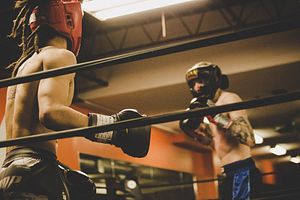Last month, following a steady stream of criticism and controversy, the International Olympic Committee (IOC) formally stripped the International Boxing Association (AIBA) of its Olympic recognition but decided to keep boxing on the schedule for the 2020 Tokyo Games.
Following the June 19 recommendations, which the IOC characterized as “the latest step in a process in which areas of concern regarding AIBA, specifically concerning the areas of finance, governance, ethics, refereeing and judging, were identified,” the AIBA’s executive committee convened an extraordinary meeting to chart a course forward.
In a July 2 summary of that meeting, the AIBA executive committee noted its decision to remove a bylaw that would have allowed the body’s president to return to his post. AIBA President Gafur Rakhimov stepped aside in March, allowing an interim president to take lead of the beleaguered organization, but the bylaws did include a provision for him to choose to return. Not anymore. “The EC members have agreed to communicate with Mr. Gafur Rahimov in order to reconfirm that his intention is not to return and to formalize this with a written resignation,” the summary noted.
This week, Rakhimov formally resigned.
While amateur boxing’s woes pre-dated Rakhimov’s tenure, his election triggered the cascade of events — investigation and scrutiny — that brought boxing to the brink of losing its Olympic status. As we covered previously, Rakhimov, an Uzbek, defeated Soviet-era Kazakh boxing legend Serik Konakbaev for the presidency of the AIBA in November 2018. The election was watched closely given the fact that Rakhimov had been targeted in late 2017 with sanctions by the U.S. Treasury Department for his alleged connection to a Eurasian criminal network dubbed the Thieves-in-Law. Rakhimov has vehemently denied the charges against him but in his resignation letter notes that his personal troubles dovetailed with the AIBA’s other issues.
In his resignation, Rakhimov wrote: “This most difficult transitional period in the history of AIBA coincides, unfortunately, with a period of my growing involvement in the processes aimed at protecting my honor and dignity against politically motivated and false accusations originating from the past.
“These processes now require me to be constantly present in legal and other proceedings in order to speed up the clearing of my name from these false accusations.”
In the interests of saving the sport and serving its athletes, Rakhimov wrote, he would step down permanently.
In May, after an inquiry, the IOC executive board recommended that the AIBA be suspended but that boxing be kept on the lineup for the 2020 Tokyo Games. In late June the executive board approved a pathway for athletes to come to the games, absent the usually AIBA-orchestrated qualifiers. The IOC will handle qualifying events itself. The AIBA, with debts reportedly near $17 million, has said it has been “avoiding bankruptcy for the last two years” but seems likely to overcome its outstanding debts.

































